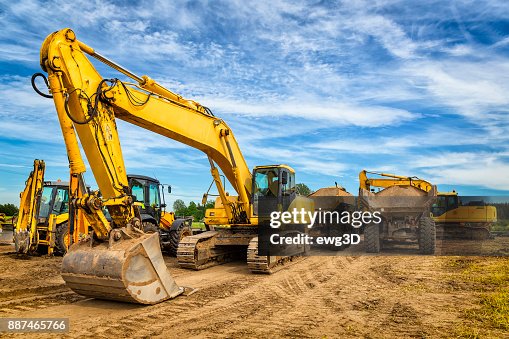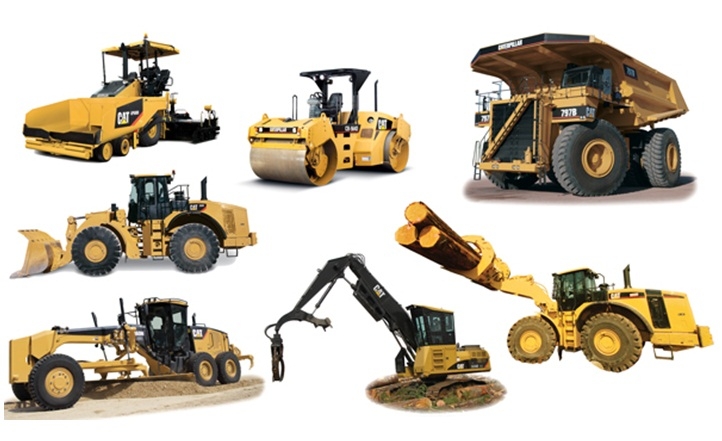Checking Out the Financial Benefits of Renting Building Tools Compared to Having It Long-Term
The decision in between having and renting building tools is crucial for monetary administration in the industry. Renting offers prompt expense savings and operational adaptability, permitting firms to allot sources much more successfully. In contrast, ownership features substantial long-term financial commitments, consisting of maintenance and depreciation. As contractors consider these alternatives, the influence on cash money flow, project timelines, and technology access comes to be significantly significant. Comprehending these subtleties is important, specifically when thinking about how they align with details project requirements and financial methods. What factors should be focused on to make certain ideal decision-making in this facility landscape?

Price Comparison: Leasing Vs. Having
When reviewing the monetary ramifications of renting out versus possessing building tools, a detailed cost contrast is crucial for making educated choices. The selection between leasing and owning can considerably affect a firm's lower line, and comprehending the associated prices is crucial.
Renting out building and construction equipment typically entails lower upfront prices, enabling services to allocate resources to various other functional needs. Rental arrangements commonly consist of versatile terms, making it possible for companies to access progressed equipment without lasting commitments. This adaptability can be particularly useful for temporary jobs or varying workloads. However, rental costs can build up with time, possibly exceeding the expense of ownership if tools is required for an extensive period.
On the other hand, having building and construction devices requires a substantial initial financial investment, along with recurring prices such as insurance, financing, and devaluation. While ownership can lead to long-term financial savings, it likewise links up funding and might not give the exact same level of flexibility as renting. In addition, possessing equipment demands a dedication to its usage, which might not constantly straighten with project needs.
Inevitably, the decision to rent or own needs to be based on a thorough evaluation of particular task demands, monetary ability, and long-term critical objectives.

Maintenance Costs and Duties
The option between having and leasing building tools not just entails monetary considerations yet additionally encompasses continuous maintenance expenditures and responsibilities. Having tools requires a considerable dedication to its upkeep, that includes regular examinations, repair work, and possible upgrades. These obligations can rapidly build up, resulting in unanticipated costs that can stress a budget plan.
In contrast, when leasing devices, upkeep is normally the duty of the rental business. This setup allows professionals to avoid the financial worry linked with damage, in addition to the logistical challenges of scheduling fixings. Rental arrangements usually include arrangements for upkeep, indicating that contractors can concentrate on finishing jobs rather than fretting about tools problem.
In addition, the varied array of equipment offered for rental fee makes it possible for companies to choose the most recent designs with innovative modern technology, which can enhance efficiency and performance - scissor lift rental in Tuscaloosa, AL. By deciding for rentals, services can avoid the lasting liability of devices depreciation and the linked upkeep migraines. Ultimately, assessing maintenance costs and obligations is crucial for making an informed choice concerning whether to possess or rent out building tools, dramatically affecting overall job expenses and operational effectiveness

Devaluation Impact on Possession

A substantial element to take into consideration in the choice to possess construction tools is the influence of devaluation on overall possession expenses. Devaluation stands for the decline in value of the devices with time, influenced by aspects such as usage, deterioration, and improvements in modern technology. As tools ages, its market price diminishes, which can dramatically impact the proprietor's monetary position when it comes time to sell or trade the equipment.
For building and construction firms, this depreciation can convert to considerable losses if the devices is not utilized to its maximum possibility or if it becomes outdated. Owners must represent depreciation in their financial projections, which can result in greater total costs contrasted to renting out. In addition, the tax obligation effects of devaluation can be intricate; while it might provide some tax advantages, these are frequently balanced out by the reality of minimized resale value.
Ultimately, the problem of depreciation emphasizes the significance of comprehending the long-term financial commitment associated with having building and construction equipment. Companies need to meticulously assess just how usually they will certainly use the tools and the potential financial effect of depreciation to make an informed choice about used skid steer roller compactor for sale possession versus renting.
Economic Flexibility of Renting
Leasing building tools provides substantial financial versatility, enabling business to allocate resources much more efficiently. This versatility is specifically vital in a sector defined by varying job needs and differing workloads. By opting to rent out, businesses can prevent the substantial resources investment required for acquiring tools, preserving money circulation for other functional requirements.
Furthermore, leasing devices enables firms to customize their equipment selections to particular task needs without the long-lasting commitment related to ownership. This implies that businesses can easily scale their tools inventory up or down based on present and anticipated job needs. Subsequently, this adaptability decreases the risk of over-investment in equipment that might end up being underutilized or outdated in time.
One more monetary benefit of renting is the potential for tax advantages. Rental payments are frequently taken into consideration overhead, permitting immediate tax deductions, unlike depreciation on owned and operated tools, which is topped numerous years. scissor lift rental in Tuscaloosa, AL. This prompt cost recognition can even more improve a business's money placement
Long-Term Job Considerations
When evaluating the lasting demands of a building see this website organization, the decision in between owning and renting equipment comes to be much more complex. For jobs with extensive timelines, buying tools might seem helpful due to the capacity for reduced overall expenses.
Furthermore, technical developments present a significant consideration. The construction industry is advancing quickly, with new devices offering improved performance and safety features. Renting permits companies to access the current innovation without devoting to the high ahead of time prices related to buying. This versatility is specifically valuable for businesses that take care of varied jobs calling for various types of tools.
Furthermore, financial stability plays a critical role. Owning equipment frequently involves substantial capital expense and depreciation problems, while renting permits even more predictable budgeting check and money circulation. Inevitably, the selection in between owning and renting out must be aligned with the strategic objectives of the construction service, considering both awaited and current task demands.
Verdict
To conclude, renting construction devices offers considerable monetary advantages over lasting ownership. The reduced upfront costs, elimination of upkeep responsibilities, and evasion of devaluation contribute to boosted cash money circulation and monetary flexibility. scissor lift rental in Tuscaloosa, AL. In addition, rental repayments work as immediate tax obligation reductions, even more profiting specialists. Inevitably, the decision to lease instead than own aligns with the vibrant nature of building and construction projects, permitting flexibility and accessibility to the most recent tools without the monetary worries related to ownership.
As tools ages, its market value decreases, which can dramatically affect the owner's financial placement when it comes time to trade the tools or market.
Renting building tools uses significant financial flexibility, permitting business to designate resources more effectively.Additionally, renting tools makes it possible for firms to tailor their devices options to certain project needs without the long-term dedication associated with possession.In conclusion, leasing construction equipment supplies significant financial benefits over long-term possession. Ultimately, the decision to rent instead than very own aligns with the vibrant nature of construction tasks, permitting for adaptability and accessibility to the latest devices without the monetary concerns linked with possession.
Comments on “Mini Excavator Rental in Tuscaloosa, AL: Compact and Powerful Equipment for Small Jobs”